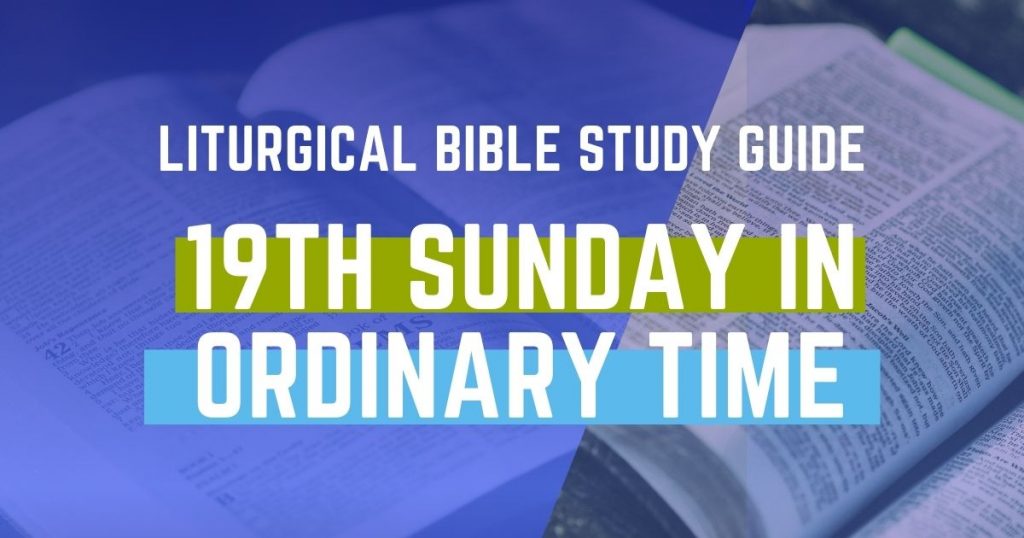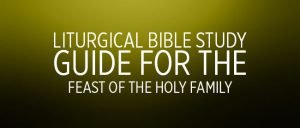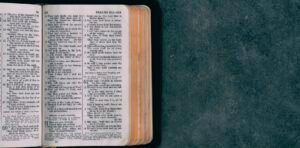1st Reading -1 Kings19:4-8
Two weeks ago (17th Sunday in Ordinary Time, Cycle B) we explored a little of the background of 1 & 2 Samuel and 1 & 2 Kings and the fact that they cover the period of time in Hebrew history from the death of the first king (Saul) to the Babylonian captivity and destruction of the temple in 586 B.C. Jewish tradition has it that these books were compiled from various sources by the prophet Jeremiah during the Babylonian captivity.
A great crisis occasioned the writing of Kings. In 587-586 B.C. the Babylonian armies of Nebuchadnezzar reached the walls of Jerusalem, destroyed the city, burned the temple to the ground, and deported to Babylon the cream of Judean citizenry. Jeremiah, because of his predictions of the fall of Jerusalem, was well treated by the occupiers as a Babylonian sympathizer and offered his choice of residence in Babylon or Judah. Jeremiah chose Judah and urged those who were left in the country to live in peace. Later, Jeremiah and Baruch (his secretary) were forced by the people to accompany them as they fled to Egypt where legend has it Jeremiah was either stoned or starved to death by his fellow exiles.
The fall of Jerusalem and the destruction of the temple were seen by the people as an abandonment by God. The protection of Israel which had been promised by God in the Sinai covenant was not realized. The temple of which He had said “My name shall be there” (1 Kings 8:29; 2 Kings 23:27) lay in ruins. The 400 year old rule of the Davidic dynasty, to which God had promised perpetuity, had come to a jarring halt, and for the believing Israelite this fact had brought faith to a horrible impasse: How could God be said to be faithful to His covenant promises? How could Israel still believe the divine promise that the Davidic dynasty would be eternal?
The time of our reading today is considerably before this tumultuous time however, somewhere around 870 B.C., give or take 10 years. Today we hear of Elijah’s flight to Horeb (the name means “dry”). Horeb is the “mountain of God”, also known as Sinai; the scene of the burning bush (Exodus 3:1); the golden calf (Exodus 32), and the promulgation of the covenant (Deuteronomy 4:10; Exodus 19-24).
The events leading immediately up to today’s reading are: Ahab is king of Israel and married to Jezebel. Jezebel has fostered the worship of the Canaanite baal in Israel and has supported 450 prophets of the baal (1 Kings 18:19). In her hostility to Yahweh worship Jezebel attempted to exterminate all the prophets of Yahweh (1 Kings 18:4,13). When Elijah stirred up a popular movement which resulted in the killing of the baal prophets, Jezebel decreed death for him also (1 Kings 19:1-2). Elijah flees to Horeb to lay a complaint 2 before Yahweh.
2nd Reading – Ephesians 4:30-5:5
Last week (18th Sunday in Ordinary Time, Cycle B) we heard from the portion of Ephesians where Paul addressed interior renewal and the week before that we heard his call to unity. This week St. Paul addresses Christian virtues. The first consequence of our interior renewal (new life) is the practice of virtue: virtues make it possible, and pleasant, for Christians to live together as members of the one body of Christ; his Church. The practice of virtue enables them to live together in love, imitating Christ who gave Himself up for love of us.
Gospel – John 6:41-51
We now continue with Jesus’ bread of life discourse at Capernaum. Last week (18th Sunday in Ordinary Time, Cycle B) Jesus had just declared that He is the bread of life; he who comes to Him shall not hunger, he who believes in Him shall not thirst.





